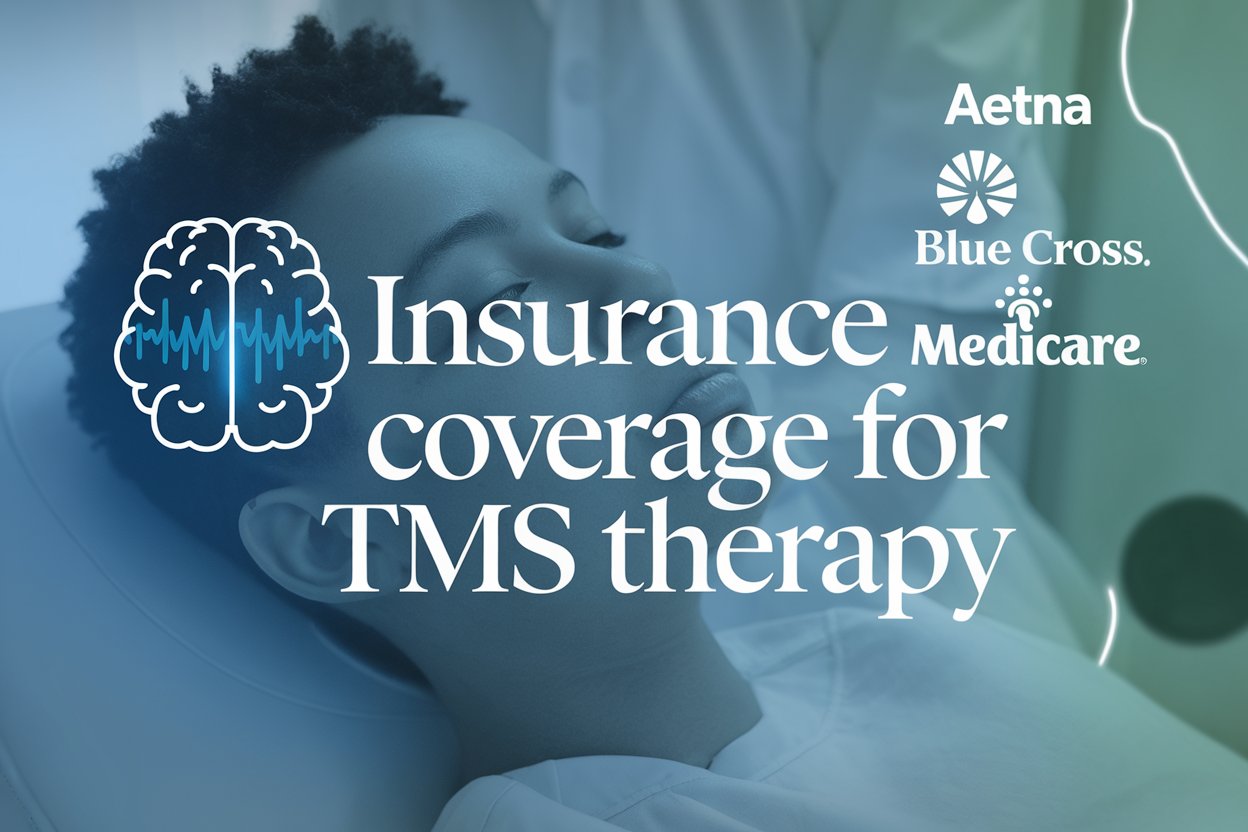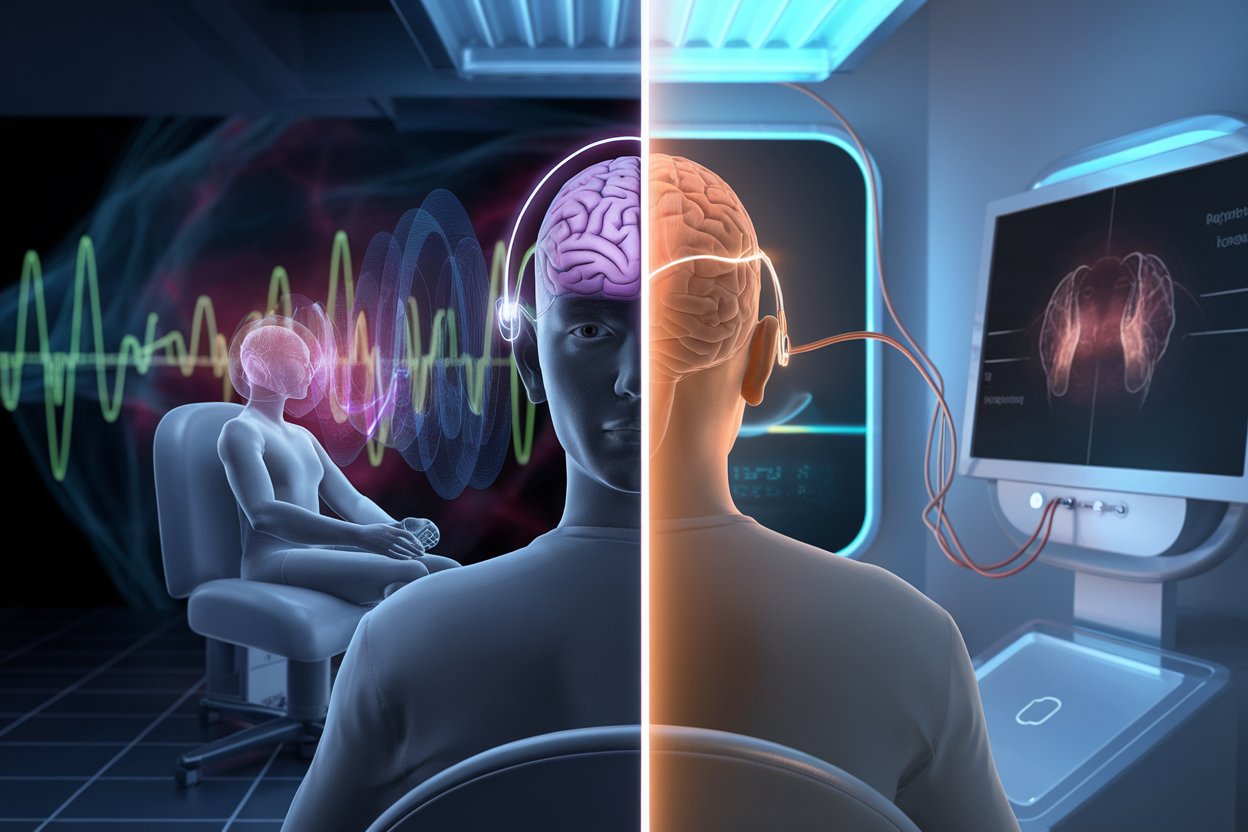Understanding Treatment-Resistant Depression
Have you tried many things to deal with your depression but are still sad? This could be what doctors mean when they say “treatment-resistant depression.” It means that the usual ways of treating it, like taking certain medicines or seeing a therapist, might not help you as much.
We know how challenging it can be to find the right help here at American TMS Clinics. Don’t worry, though; we have treatments that might help you even if nothing else has.
What is TMS?
Transcranial Magnetic Stimulation (TMS) is a treatment we provide. TMS wakes up parts of your brain that help control your mood with safe magnetic fields. You don’t have to sleep during the treatment, and it’s not scary. TMS is a good option if other treatments haven’t made you feel better.
Comprehensive Care Strategies for Treatment-Resistant Depression
People with treatment-resistant depression have particular challenges that need a multifaceted approach to care. Here is a structured guide on how to deal with and maybe even get rid of this persistent condition.
Understanding Your Condition
Initial Evaluations and Ongoing Assessments
- Medical and Psychological History: First, take a close look at your medical and mental health history. This test helps find any underlying causes or factors that might be at play, like long-term illnesses or stressful events in life.
- Review of Previous Treatments: It’s very important to know what kinds of treatments have been tried, like drugs and therapy. This review shows what worked and didn’t work in the past, which helps plan future treatment.
Engaging in Targeted Therapies
Personalized Psychotherapy
- Therapeutic Approaches: Mental health treatments that have been shown to work include Cognitive Behavioral Therapy (CBT) and Dialectical Behavior Therapy (DBT). Individualized therapies are designed to help you learn new ways to deal with problems, alter negative thought patterns, and get better at solving them.
- Regular Sessions: Stick to your routine. Meeting with a mental health professional on a regular basis can help with ongoing support and making changes to treatments as needed.
Advanced Treatment Options
Innovative Medical Interventions
- Transcranial Magnetic Stimulation (TMS): If regular treatments don’t work, you might want to try TMS. Magnetic pulses are used in this treatment to stimulate parts of the brain that control mood. It works especially well for people who haven’t responded well to medications.
- Treatment Schedule: TMS involves multiple sessions, typically spread over several weeks, where each session lasts about 30 minutes.
Insurance Coverage for TMS: Treatment-Resistant Depression
If you have tried several treatments for depression and none of them have worked, this may actually make it easier for your insurance to pay for TMS (Transcranial Magnetic Stimulation) therapy. Before covering more advanced therapies like TMS, insurance companies often want to see proof that standard treatments have not worked. This requirement helps to make sure that TMS is used as a useful treatment option for people who really need other options.
Other Helpful Tips for Treatment-Resistant Depression
This may be something you’ve heard before if you’re here. This is good news if you haven’t heard it before. To get the most out of your treatment and improve your mental health in general, do the following:
- Be sure to follow your treatment plan. Don’t skip therapy, and do what your doctor tells you about taking your medicine.
- Try not to use drugs or drink alcohol. Their effects on depression can get worse.
- Try to calm down. You could do yoga or meditate.
- Get enough rest, and try to move around. This and that can both make you feel better.
Frequently Asked Questions About Treatment-Resistant Depression
How do you survive treatment-resistant depression?
You have to be proactive and persistent to get through treatment-resistant depression. You should work closely with your healthcare provider to explore a variety of therapeutic options. Making changes to your lifestyle, such as eating well, exercising regularly, and practicing mindfulness, can also help your mental health. Adding transcranial magnetic stimulation (TMS) to your treatment could also be very helpful. TMS is a non-invasive procedure that uses magnetic fields to stimulate nerve cells in the brain, specifically targeting areas related to mood control. This treatment has worked for many people who haven’t seen results from traditional methods, giving you a new way to deal with treatment-resistant depression.
Is there hope for treatment-resistant depression?
Indeed, there is always hope for those who are suffering from depression that is resistant to treatment. New medical treatments and therapies, such as transcranial magnetic Stimulation (TMS), give hope to those who have not responded to conventional therapies. TMS, in particular, offers a non-invasive option that targets the neural activity associated with depression with fewer side effects than other more invasive procedures. Many patients who undergo TMS report significant improvements, suggesting that even those with resistant forms of depression have substantial options for relief.
What is the last resort for treatment-resistant depression?
Although ECT is frequently used as a last resort because of its intrusive nature and associated side effects, including memory loss, TMS is becoming a better option before it is taken into consideration. TMS is a safer and frequently successful option for many patients because it is less invasive and usually has fewer side effects. By stimulating brain cells with magnetic fields, it alleviates depression symptoms and provides a non-pharmacological means of improving mood and brain function.
What is the new drug for treatment-resistant depression?
Recently approved medication esketamine is a big step forward in treating depression that doesn’t respond to other treatments. It works much faster than regular antidepressants, and it can help within hours or days instead of the weeks that regular medications take to work. However, TMS therapy might be a better choice for people who want long-lasting solutions without the drug side effects. TMS is a non-drug alternative that can be tailored to each person’s needs and can provide lasting benefits.
Why Consider TMS Therapy for Treatment-Resistant Depression in Phoenix Arizona?
TMS Therapy is a new and effective way to help people with depression that doesn’t respond to other treatments. It goes straight for the parts of the brain that control mood without the systemic side effects that come with medicines. TMS is an outpatient procedure, which means that patients can go back to their normal lives right away after each session, which lasts between 30 and 60 minutes. TMS is a promising option for people who want to avoid invasive procedures and drugs. It has been clinically proven to help people with depression who have not responded to other treatments.
Talk to a specialized center that provides these services to learn more about how to deal with depression that doesn’t respond to other treatments and to find out if TMS Therapy might be right for you.
Contact American TMS Clinics today to find out if you are eligible for new treatments that could give you new hope and a way to get better from depression that doesn’t respond to other treatments.
Ready to Start Feeling Better?
If you or someone you love is struggling with treatment-resistant depression in Phoenix Arizona and hasn’t found help with other treatments, American TMS Clinics might have a solution. We’re offering a free egg and a psychiatric evaluation to see if TMS could be right for you.





